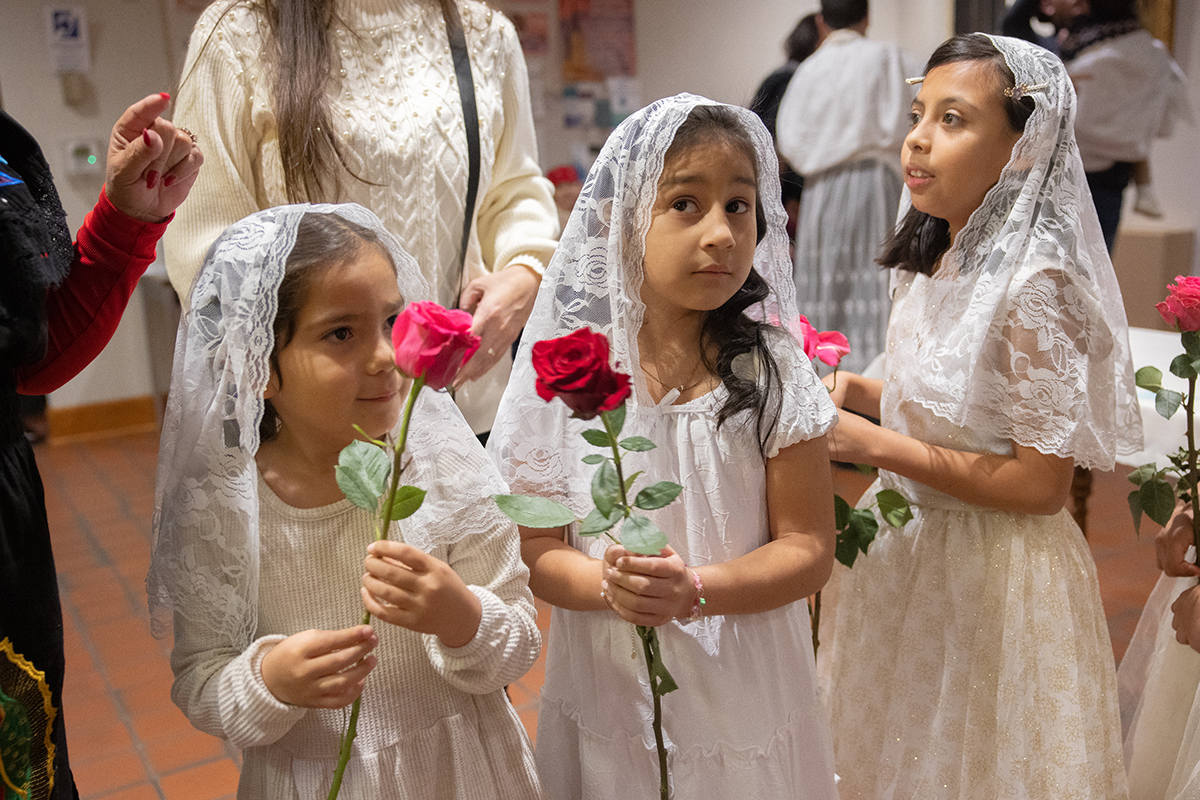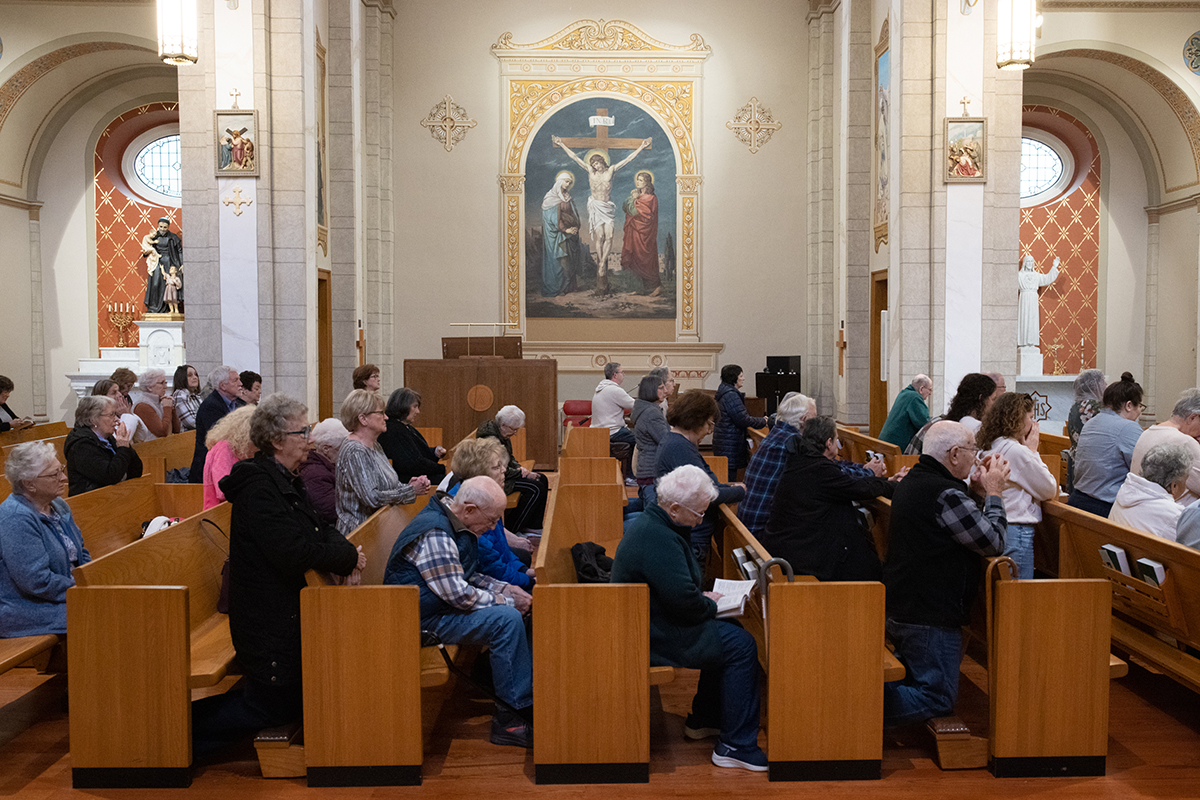FDA approves marketing of app that naturally tracks a woman’s fertility
App is important first step in recognition by government, says director of NFP Office
Last month, the U.S. Food and Drug Administration permitted marketing of the first mobile app to track a woman’s fertility cycles.
The app, called Natural Cycles, is being marketed as the first direct-to-consumer app for contraceptive use to prevent pregnancy, according to an Aug. 10 release from the FDA.
“Consumers are increasingly using digital health technologies to inform their everyday health decisions, and this new app can provide an effective method of contraception if it’s used carefully and correctly,” said Dr. Terri Cornelison, assistant director for the health of women in the FDA’s Center for Devices and Radiological Health.
Diane Daly, director of the archdiocesan Office of Natural Family Planning, noted that while the FDA has limited its focus on the app as a method of contraception, which the Church teaches against, that a government agency has recognized the tracking of a woman’s natural fertility is an important first step. Daly added that natural family planning is not contraception, but a system of understanding a woman’s fertility and using that information to avoid or achieve pregnancy in harmony with body changes.
“It is exciting for the government to recognize a natural system of fertility care,” said Daly. “In that way it’s historical.”
Natural Cycles contains an algorithm that calculates the days of the month a woman is likely to be fertile based on daily body temperature readings and menstrual cycle information. The app has features to track a woman’s basal body temperature and menstrual cycle. More than 15,000 women used the app in clinical studies to evaluate its effectiveness. The results included a “perfect use” failure rate of 1.8 percent, and a “typical use” failure rate of 6.5 percent, the latter which accounted for women who sometimes used the app incorrectly.
In the archdiocese, there are five Church-approved methods of tracking a woman’s fertility cycles, commonly known as natural family planning. The methods are accompanied by the support of a practitioner or someone who has been trained to teach the method, Daly noted. She cautioned that the Natural Cycles app does not include that kind of support.
Several methods of NFP, including the Marquette Model and Billings Ovulation Method, offer mobile apps. The Creighton Model FertilityCare System, has an app in development.
The FDA’s announcement comes as the Church marks the 50th anniversary of Blessed Paul VI’s encyclical, “Humanae Vitae,” which outlined what God intended married love and life to be and how the procreation of children are a part of that.
“Isn’t it interesting that this has happened (at the) 50th anniversary of ‘Humanae Vitae?’” Daly said. “To think that the government is recognizing a natural approach, where 50 years ago, there was a lot of dissension and people would not have recognized this, is amazing.”
Another step the government has made in recognizing natural fertility methods happened in 2007, when the medical coding system used by the government, insurance companies, medical clinics and health care providers began including codes specifically for coverage of natural family planning. The American Academy of FertilityCare Professionals, which promotes the Creighton Model, was behind the push for the coding. Employees of the Archdiocese of St. Louis who have insurance through the archdiocese receive 100 percent coverage for natural family planning instruction.
The FDA also noted that it is establishing criteria, called special controls, which clarify the agency’s expectations in assuring the accuracy, reliability and effectiveness of fertility awareness apps. Last year, the FDA released a Digital Health Innovation Action Plan to look at ways in how the agency regulates digital health technologies such as the Natural Cycles app.
>>Wine and Wisdom event
Natural family planning played a significant role in Yvonne and Jay Klein’s commitment to the Church and its teachings. “Our experience is about conversion,” said Yvonne Klein. “Natural family planning has increased our communication levels, and made us truly realize what a gift our fertility is.”
The Kleins, members of St. Clement of Rome Parish in Des Peres, will be among several presenters at an event later this month to share their personal experiences with NFP and Blessed Paul VI’s encyclical “Humanae Vitae.”
“On Love and Life: An Evening of Conversation, Wine and Wisdom,” will take place from 6-8 p.m. Thursday, Sept. 20, at the Cardinal Rigali Center in Shrewsbury. The event is a celebration of the 50th anniversary of “Humanae Vitae,” and will offer clarity on the Church’s teaching on marriage, sexuality, life and fertility.
Joining the Kleins will be Auxiliary Bishop Mark Rivituso, archdiocesan chancellor Nancy Werner, Dr. Gavin Puthoff, and married couple Andrew and Ashley Frank, all of whom will share their perspectives on living “Humanae Vitae” in today’s world.
Heavy appetizers, wine and beverages will be provided at the free event. RSVP by Sept. 15 at bit.ly/WineWisdomSTL.
— Jennifer Brinker
Last month, the U.S. Food and Drug Administration permitted marketing of the first mobile app to track a woman’s fertility cycles. The app, called Natural Cycles, is being marketed as … FDA approves marketing of app that naturally tracks a woman’s fertility
Subscribe to Read All St. Louis Review Stories
All readers receive 5 stories to read free per month. After that, readers will need to be logged in.
If you are currently receive the St. Louis Review at your home or office, please send your name and address (and subscriber id if you know it) to subscriptions@stlouisreview.com to get your login information.
If you are not currently a subscriber to the St. Louis Review, please contact subscriptions@stlouisreview.com for information on how to subscribe.





